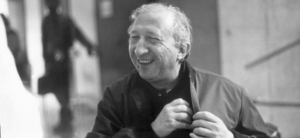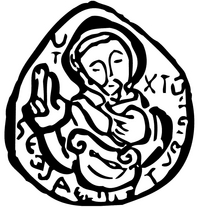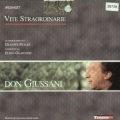“One of the hallmarks of Pope Benedict XVI’s papacy has been his emphasis on the need for an authentic encounter with Christ. Monsignor Giussani’s principles help us understand just how that can happen.”
Father Dwight Lonenecker
“One of the hallmarks of Pope Benedict XVI’s papacy has been his emphasis on the need for an authentic encounter with Christ. Monsignor Giussani’s principles help us understand just how that can happen.”
Father Dwight Lonenecker
 Father Julián Carrón, the President of the Fraternity of Communion and Liberation, the ecclesial movement founded Father Luigi Giussani (who died 7 years ago today) and which was approved by the Church 30 years this past February 11, gave the preliminary research to Angelo Cardinal Scola, Archbishop of Milan, to open the diocesan phase of investigating the eventual beatification and canonization of Father Luigi Giussani.
Father Julián Carrón, the President of the Fraternity of Communion and Liberation, the ecclesial movement founded Father Luigi Giussani (who died 7 years ago today) and which was approved by the Church 30 years this past February 11, gave the preliminary research to Angelo Cardinal Scola, Archbishop of Milan, to open the diocesan phase of investigating the eventual beatification and canonization of Father Luigi Giussani.
“On the 30th Anniversary of the Pope’s recognition of the Fraternity of Communion and Liberation, we ask the Lord for the gratitude for the meeting with Father Giussani’s charisma to become a renewed responsibility every day for our Destiny and that of all our human brothers, in our indomitable faithfulness to the Church in history’s joyous and tragic events. So let us say a special prayer for the Holy Father, invoking upon him the comfort of the Holy Spirit in this moment of great chaos.”
Mass intention for the Fraternity of Communion and Liberation, 2012
 Those who follow the lay ecclesial movement, Communion
Those who follow the lay ecclesial movement, Communion
and Liberation, and attend the weekly School of Community, know that we’ve come
to end of our work on Father Luigi Giussani book, the The Religious Sense. For the
coming year we will be working on Giussani’s At the Origin of the Christian
Claim. On January 25, 2012, at the Teatro degli Arcimboldi, Milan, Father Julián
Carrón’s made a presentation of Father Luigi Giussani’s book.
“Christianity is a new life, it’s a new way of living, which is to say of perceiving, of judging, of feeling, of reacting and of manipulating things. It is a new way of life, a new way of living, not individually but essentially as a community. So, that the Church is present in an environment means that in that environment the Christian community is present as life, that the Christians live the life of that environment in everything, honestly, in every detail, lives the interests that make up that environment, but from another point of view.”
 On October 8, 2011, a film series co-sponsored by the Siena Forum for Faith and Culture and Crossroads Cultural Center on extraordinary Christian lives concluded with the showing of the documentary conducted by Elena Guarnieri of “Vita Straordinarie: Don Luigi Giussani” (Extraordinary Lives: Fr. Luigi Giussani”) on the life and work of Monsignor Luigi Giussani, called: the priest wounded by beauty by Pope Benedict when he offered the Sacrifice of the Mass for the repose of Giussani’s soul on 25 February 2005.
On October 8, 2011, a film series co-sponsored by the Siena Forum for Faith and Culture and Crossroads Cultural Center on extraordinary Christian lives concluded with the showing of the documentary conducted by Elena Guarnieri of “Vita Straordinarie: Don Luigi Giussani” (Extraordinary Lives: Fr. Luigi Giussani”) on the life and work of Monsignor Luigi Giussani, called: the priest wounded by beauty by Pope Benedict when he offered the Sacrifice of the Mass for the repose of Giussani’s soul on 25 February 2005.
The head of the Communion and Liberation Movement, Father Julián Carrón wrote an editorial for tomorrow’s (July 14, 2011) edition of the L’Osservatore Romano about the forthcoming Day of Prayer in Assisi on October 27, recognizing the theme of peace and justice.
The Day for
Reflection, Dialogue and Prayer for Peace and Justice in the World, convoked in
Assisi next October 27 by Benedict XVI is an audacious gesture, just as Blessed
John Paul II’s initiative was, 25 years ago.
“In the name of what can (Pope
Wojtyla) call exponents of all religions together to pray in Assisi?” asked Don
Luigi Giussani twenty-five years ago. He answered, “If one understands the
nature of man, the heart of man, it is his religious sense, it is in the
religious sense that all men find equality and identity. The most profound
meaning in the human heart is religious sentiment, destiny on the one hand and
the usefulness of the present on the other. If we want to use the right terms,
a sense of religion is the only sense which is truly catholic, which means
suitable for everyone and belonging to everyone.”
Continue reading Truly an ecumenical approach born from the good news of Christianity
Several things have surfaced for me recently that has me wondering about what we are doing as a Christian people living our faith in a parochial setting today. Two things to read are the notes from a recent Communion and Liberation retreat and the Pope’s recent remarks in Croatia. Both go hand-in-hand: God is not a sentimental object and He remains an authority. But in order for me to say this with conviction I’ve got to accept that if I am in Christ I am a new creation (really!) and therefore a living presence. How many times during the Easter season did I understand that Christ was (is) the newness of life? The honest answer is: it is hard to tell.
Father Julián Carrón had the following to say in his introductory remarks for Communion & Liberation’s Fraternity Spiritual Exercises given this spring that bear significant attention for whatever ministry we find ourselves in (or not):
“It seems I am hearing today the same identical question Fr. Giussani was asked by a student. He himself recounts it: “Now people no longer perceive the correspondence between the Christian proposal in its originality, the Christian event, and everyday life. When you try hard to make it understood, they say, ‘But you’re so complicated, you’re so complicated!’ In high school, when I dictated what you study in School of Community, I had in class the son of Manzù, who had a priest he always went to. This priest stirred him up against what he read in the notes from my lessons, and told him, ‘See, this complicates, while, instead, religion is simple.’ In other words, ‘the reasons complicate’-and how many would say the same!–‘the search for the reasons complicates.’ Instead, it illuminates! This mindset is the reason Christ is no longer an authority, but a sentimental object, and God is a boogeyman and not a friend.”
Father Julián Carrón, president of the Fraternity of Communion and Liberation was interviewed by the Vatican newspaper L’Osservatore Romano on the beatification of Pope John Paul II. Father Carrón said that “beatification of John Paul II … is a ‘strong invitation’ to conversion.”